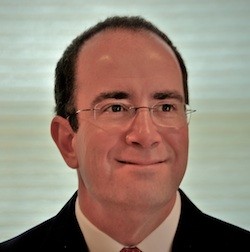The lines between alternative and traditional investments continue to blur as institutional and retail investors view alternative mutual funds as substitutes for hedge funds.
Traditional asset managers have been steadily crossing over into the alternatives space. Firms are developing alternative asset products or acquiring alternative asset businesses to augment their traditional fund offerings and diversify their revenue sources.
“I have met with several institutional fund managers from the hedge fund and private equity worlds recently looking to move into the retail space,” said Brad McMillan, vice president and chief investment officer at Commonwealth Financial Network. “The institutional space is already well served, but the perception – accurate, I believe – is that there are still opportunities in the retail space.”

Brad McMillan, Commonwealth Financial Network
Commonwealth Financial Network, one of the largest independent broker-dealers with 1,600 investment advisors and $72 billion in assets under management, is actively recommending mutual funds that include alternative strategies such as global macro, merger arbitrage and managed futures.
“Institutional managers looking to move into retail provision have a couple of decisions to make – private product versus mutual fund structure; buy versus build on the distribution side; and fee structures which will be significantly different depending on whether the product is private/limited distribution or public/broad distribution,” McMillan said.
Alternative assets are occupying an increasingly important niche within the asset management community, and companies are systematizing the way they go about selecting managers.
Blackstone Alternative Asset Management (BAAM), the hedge fund business of Blackstone, is launching its first alternative investment-focused mutual fund that offers daily liquidity.
The Blackstone Alternative Multi-Manager Fund (BXMMX) is a registered, open-end mutual fund that is managed by Blackstone Alternative Investment Advisors LLC. BXMMX will allocate assets among a variety of investment sub-advisers with experience managing non-traditional or alternative investment strategies. Blackstone may also manage a portion of the Fund’s assets directly and may invest in unaffiliated hedge funds.
BAAM is the world’s largest discretionary allocator to hedge funds and has approximately $49 billion under management. Blackstone has spent the last three years analyzing and preparing to enter the market for liquid alternatives.
Mutual funds are becoming the dominant vehicle used by both advisors and institutions to access the majority of alternative strategies. Alternative mutual funds saw inflows of $19.7 billion in 2012, while Morningstar estimates that among funds in its database, $7.6 billion flowed out of single-strategy hedge funds.
Institutional investors are starting to see alternative mutual funds as substitutes for hedge funds, and more financial advisors are incorporating these liquid, transparent investments into their client portfolios.
“We have seen major growth in liquid alternatives, especially in the areas of managed futures and commodities,” said Ed Egilinsky, head of alternative investments at Direxion Funds, which manages $7.5 billion. “Most of our distribution for liquid alternatives is through broker-dealers or registered investment advisors, who are looking to use different types of alternative strategies to diversify their portfolios.”
The Direxion Indexed Commodity Strategy Fund, one of two alternative funds that Direxion manages, uses a “long/flat” approach to commodity investing.
“Most traditional commodity funds are long only and therefore can only benefit if commodity prices rise,” Egilinsky said. “In comparison, a long/flat approach is more adaptive to the inherently volatile commodity markets because it can take advantage of commodity prices when they rise and preserve capital by going flat (cash) when commodities prices fall.” Currently, the fund is invested mostly in cash, he said.
Opportunities for hedge fund managers to cross over into the liquid alternative mutual fund space have accelerated since the financial crisis of 2008.
“Post 2008 the desire was for non-correlated returns and effective diversification,” said McMillan. “As the market has recovered, alts are increasingly being demanded as alpha generators. I expect this to change again after the next market downturn.
According to Cerulli Research, rost firms have built their alternative businesses internally, while one-third have expanded into alternatives through hiring subadvisors. In 10 years, managers surveyed by Cerulli anticipate that on average, alternative mutual fund assets will account for 13.6% of total mutual fund assets, up from 2.2% at the end of 2012.
McMillan, who joined Commonwealth in 2006 as director of alternative investments, created the alternative financial strategies group which specializes in managed futures, hedge funds, and other non-traditional investment strategies.
About two and a half years ago, Commonwealth concluded that the alternative product class available via mutual funds was “mature enough to include on our recommended list of alternative strategies,” said McMillan.






